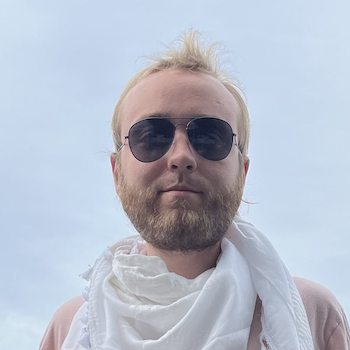
Culture
You Can’t Understand Islamic Extremism Without Understanding Sayyid Qutb
It has now been more than a year since the October 7th terrorist attacks, yet the ongoing violence across Gaza, Lebanon, Syria, Iraq, Iran, and Yemen shows no sign of abating. Over the past year, anti-American and anti-Israeli sentiment has surged to new highs, sparking mass protests in several nations. In Bangladesh, public anger led to the ousting of longtime leader Sheikh Hasina and has fueled the spread of militant Islamist ideologies. Just a couple of weeks ago, a friend of mine revealed that he supports the Taliban—a revelation that left me questioning my understanding of Islamic extremism. But in piecing together this complex puzzle, one figure looms large: Sayyid Qutb.
Sayyid Qutb was born on October 9, 1906, in Musha, a rural village in Egypt’s Asyut district, to Hajji Ibrahim Qutb and Fatimah Husayn Uthman, the eldest of several siblings. In his home, religious discourse and Qur’an readings were common, and by age ten, Qutb had memorized the entire Qur’an. From an early age, he was an enthusiastic reader, devouring Sherlock Holmes, the Arabian Nights, and books on magic and astrology. His engagement with such texts even led him to assist with exorcisms. But in his teenage years, Qutb grew disillusioned with mainstream religious institutions, instead gravitating towards schools that taught a full range of subjects, including religion.
Qutb began his career as a teacher and, in 1922, published his first article in al-Balagh magazine. Ten years later, he released his first book, Muhimmat al-Sha’ir fi al-Haya wa Shi’r al-Jil al-Hadir (The Mission of the Poet in Life and the Poetry of the Present Generation), marking the end of his time at the Dar al-Ulum institution. By 1939, he worked with the Egyptian Ministry of Education, and his views changed dramatically. The works of Nobel Prize-winning surgeon Alexis Carrel, a fierce critic of modern Western civilization, influenced Qutb profoundly. To him, Western culture was corroding humanity, creating hyper-individualistic, parasitic societies instead of the cohesive, collectivist communities he valued.
As Qutb’s anti-Western views sharpened, his superiors became concerned. In 1948, they sent him to the United States to study American education, hoping this experience might soften his stance. But his time in the U.S. had the opposite effect, only intensifying his hatred of the West. He studied at a teachers’ college in Greeley, Colorado—a town with strict alcohol prohibitions and deep religious conservatism, which might have seemed a more relatable environment. Yet Qutb was repelled by what he perceived as American society’s flaws, including racism, sexual freedom, and what he saw as moral and spiritual emptiness. The breaking point came at a mixed-gender Christmas dance at a local church, where he heard “Baby, It’s Cold Outside,” a song that, to Qutb, encapsulated what he saw as American decadence. He found the culture hyper-racialized, hyper-sexualized, godless, and spiritually void. Critics of Qutb’s account note that 1950s Greeley was hardly a hub of premarital freedom—this era predated the sexual revolution of the 1960s, and abortion wouldn’t be legalized until 1973. Nonetheless, the experience cemented Qutb’s negative view of American society.
Returning to Egypt in 1951, Qutb’s outlook hardened into a binary worldview, dividing the world into two camps: Islam (belief) and Kufr (disbelief), or as he termed it, jahiliyah (ignorance) and hakimiyah (divine rule). He saw the entire world, including the Islamic world, as having reverted to jahiliyah, the pre-Islamic ignorance that Islam was meant to overcome. He believed that only through the violent overthrow of non-Muslims and “false Muslims” aligned with the West could the original faith of the Prophet Muhammad be restored. Qutb further refined his ideology while imprisoned after his arrest in 1954, alongside a thousand members of the Muslim Brotherhood, due to an assassination attempt on Egypt’s pro-Soviet socialist president, Gamal Abdel Nasser. Although sentenced to fifteen years, Qutb spent most of his last twelve years in the infirmary due to poor health. During this time, he wrote his most significant works, including Fi Zilal al-Qur’an (In the Shade of the Qur’an) and his manifesto, Ma’alim fi al-Tariq (Milestones).
When Qutb’s major works were published in 1964, they were banned within six months, leading to his re-arrest. The following year, he was sentenced to death and hanged, two months shy of his sixtieth birthday. His ideas, however, endured: his younger brother, Muhammad Qutb, later became a mentor to Osama bin Laden, and Sayyid Qutb’s ideology—now known as Qutbism—greatly influenced the beliefs of extremists like Osama bin Laden, Ruhollah Khomeini, and others. Today, Qutbism fuels groups such as ISIS, al-Qaeda, the Taliban, Boko Haram, al-Shabaab, Abu Sayyaf, and their affiliates.
Qutb grew up during a period when the Islamic world was largely under European control, its people subjugated, and its resources exploited, while the United States was ascending as a global power and Zionism was emerging. After the September 11 attacks, President George W. Bush famously stated that Osama bin Laden hated the U.S. for its freedom, democracy, and values, including gender equality and personal freedom. Yet bin Laden’s grievances were less about these ideals than about U.S. foreign policy and the cultural values he, like Qutb before him, saw as godless and morally bankrupt. Witnessing recent violence in Gaza and Lebanon, along with the United States’ ongoing support for Israel, it’s difficult to ignore the ideological echo of Qutb’s resentment. Our two leading presidential candidates are both ardently pro-Israel; one openly aligns with white supremacy, while the other wraps Islamophobia in the rhetoric of feminism and gay rights.
Realistically, without significant changes in American foreign policy, particularly around unconditional support for Israel, we may face an ever-deepening clash of civilizations. This dilemma highlights the urgent need for U.S. leadership that is responsive to citizens over wealthy donors. The stakes have never been clearer, and the costs of ignoring this reality could be profound.
